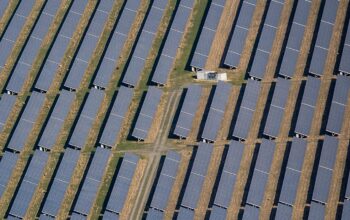Why Sustainable Coding Matters Now
In a world where climate change headlines dominate, the tech industry is joining the green revolution. But it’s not just about saving power in bulky data centers; software developers are realizing their impact too. Enter green coding — writing software that’s not just smart but energy-efficient, saving power and cutting carbon footprints.
Imagine software development as driving a car. You can choose to drive a gas guzzler or a fuel-efficient model. The programming languages you use are your engines, and choosing the right ones today influences how much ‘fuel’ (energy) your code consumes.
Trending Languages Driving Sustainability
Here are some rising stars in programming that focus on environmental sustainability in various ways:
1. Python with Eco-Friendly Libraries Python continues to dominate because of its simplicity and rich ecosystem — but it’s also going green. Libraries like TensorFlow Lite and PyEco focus on energy optimization and efficient AI model deployment. Organizations use these to train models that consume less compute power, shrinking the carbon footprint.
2. Rust for Performance and Efficiency Rust is winning hearts for writing fast, low-level code without memory leaks. Its ability to deliver high speed while controlling power consumption means software runs swiftly on small devices, reducing resource use — a big plus for sustainable IoT and environmental sensors.
3. Julia in Scientific Computing Julia is rising rapidly in scientific and environmental modeling due to its high-performance math capabilities and ease of use. Using Julia allows researchers to run detailed climate models faster and more energy-efficiently, speeding up innovations in sustainability science.
4. JavaScript with Lightweight Frameworks Though often criticized for bloated websites, new lightweight JS frameworks emphasize reducing unnecessary code and data loads, which translates to less energy spent on rendering web pages and faster, greener browsing.
5. Go for Cloud Efficiency Go’s concurrency model and optimization make it popular in cloud infrastructures. Efficient backend services mean less server strain and lower electricity consumption in data centers, supporting sustainable cloud computing initiatives.
Real-World Stories in Green Coding
Take AI — it’s a powerhouse but a notorious energy hog. Researchers found that training a single AI model can emit as much CO₂ as several cars do over years. To tackle this, many turn to energy-aware AI coding techniques using Python and Rust, coupled with smarter scheduling that runs heavy computations when clean energy is abundant.
In another example, environmental monitoring projects deploy Rust-powered sensors that gather data with minimal power, enabling communities to track air and water quality sustainably.
Startups designing green web apps leverage lightweight JavaScript tools to cut down on loading times and reduce data transmission, saving bandwidth and energy worldwide.
How Developers Can Make a Difference
- Choose languages that enable efficient resource use.
- Opt for frameworks and libraries designed with sustainability in mind.
- Schedule energy-heavy tasks when renewable power is available.
- Use modeling languages like Julia for more precise and faster simulations.
Wrapping Up
Green coding is more than a buzzword; it’s a pressing movement where the choices developers make directly affect the environment. Just like upgrading your car reduces your carbon footprint, shifting to more sustainable programming languages and techniques powers a cleaner future. The code we write today fuels the planet’s tomorrow — choosing wisely is the key to coding green.
References:
- https://computer-geek.net/green-coding:-writing-sof-va-818.html
- https://bssw.io/items.rss
- https://aicompetence.org/greening-ai-a-smarter-sustainable-software-agenda/
- https://www.callutheran.edu/financial-aid/scholarships-grants/outside-scholarships.html
- https://devops.com/how-far-are-we-from-truly-sustainable-devops/
- https://allianceforwaterefficiency.org/category/uncategorized/
- https://www.wunc.org/environment/2025-07-01/environmental-impact-study-chat-ai
- https://www.mdpi.com/2071-1050/17/13



